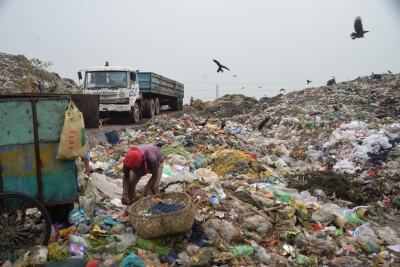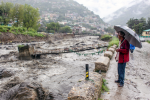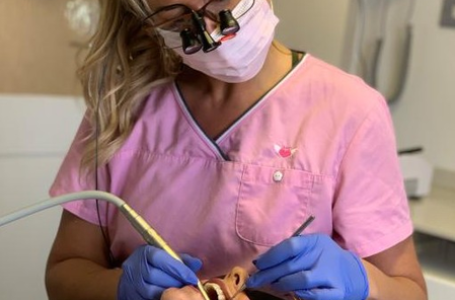
New Delhi: At the halfway point of the resumed fifth session of the Intergovernmental Negotiating Committee (INC-5.2) in Geneva to develop an international legally binding instrument on plastic pollution, including in the marine environment, delegates have sought fast-track efforts to provide a treaty truly capable of ending plastic pollution.
Also, the International Indigenous Peoples’ Forum on Plastics (IIPFP) has called on governments to uphold their rights in all aspects of the treaty, as affirmed by the UN Declaration on the Rights of Indigenous Peoples (UNDRIP).
At the stocktaking plenary on Saturday, delegates considered an “assembled text” and discussed the negotiation process for the remaining four days.
In Geneva, negotiators from 184 nations, including a strong delegation of Pacific Small Island Developing States (PSIDS), which continue to lead calls for a high ambition treaty that addresses the full lifecycle of plastics, are trying to hammer out the first-ever legally binding treaty on plastic pollution.
The urgency of the talks was necessitated by a new study published in The Lancet that calls plastics a “grave, growing and under-recognised danger to human and planetary health”.
In 2023, global plastic production reached 436 million metric tons, while trade in plastics surpassed $1.1 trillion, accounting for five per cent of global merchandise trade. However, 75 per cent of all plastic ever produced has become waste, much of which leaks into oceans and ecosystems, says the UN Trade and Development.
It says this growing imbalance threatens public health, food systems, ecosystems, and long-term development, especially in small-island and coastal nations.
The average Most Favoured Nation (MFN) tariffs on plastic and rubber products have decreased from 34 to 7.2 per cent over the past three decades, making fossil fuel-based plastics artificially inexpensive. In contrast, natural alternatives such as paper, bamboo, natural fibers, and seaweed face average MFN tariffs of 14.4 per cent.
According to the Earth Negotiations Bulletin, during the discussion, delegations were united on one thing: the negotiations are moving too slowly. On this, they made several suggestions, with Colombia calling for full days of informal negotiations and the EU and China urging the INC Chair to engage in “shuttle diplomacy” to move the text forward.
Many others were concerned about the “unchecked” expansion of the text, with Fiji calling for a time-bound process to streamline the text. Several delegations called for a dedicated discussion on scope.
Despite Indigenous Peoples’ record attendance, an analysis by the Center for International Environmental Law (CIEL) reveals the disproportionate influence of polluting industries on these negotiations. At least 234 fossil fuel and chemical industry lobbyists, a new high compared to the 221 identified by CIEL at INC-5, have registered to participate in the fifth and final scheduled session of the INC-5.2 of the plastics treaty negotiations.
It says the strong presence of lobbyists at this stage of the negotiations raises concerns about corporate influence at a pivotal moment, when negotiators are expected to finalise the treaty text and lay the groundwork for its adoption.
In a written statement submitted to the plenary, the Alliance of Small Island States (AOSIS), representing the interests of the 39 small island and low-lying coastal developing states, made a firm call for a treaty rooted in accountability, ambition, and action.
The underway negotiations follow INC-5, which took place in November-December 2024 in Busan in Korea. That meeting was preceded by four previous sessions: INC-1, which took place in Punta del Este in November 2022, INC-2, which was held in Paris in June 2023, INC-3, which happened in Nairobi in November 2023, and INC-4, held in Ottawa in April 2024.
“Plastic pollution is already in nature, in our oceans and even in our bodies. If we continue on this trajectory, the whole world will be drowning in plastic pollution — with massive consequences for our planetary, economic and human health,” said Inger Andersen, Executive Director of UNEP.
“But this does not have to be our future. Together, we can solve this challenge. Agreeing on a treaty text is the first step to beating plastic pollution for everyone, everywhere,” Andersen said.
Since Busan, in the run-up to INC-5.2, a series of informal ministerial meetings, regional consultations, and heads of delegations meetings have taken place.
“We are here today to fulfil an international mandate. This is a unique and historic opportunity for the international community to bridge differences and find common ground. It is not just a test of our diplomacy — it is a test of our collective responsibility to protect the environment, safeguard human health, enable sustainable economies, and stand in solidarity with those most affected by this plastic pollution crisis,” said Luis Vayas Valdivieso, Chair of the INC.
As of the opening day on August 4, more than 3,700 participants had registered to participate in INC-5.2, representing 184 countries and over 619 observer organisations.
IANS



















